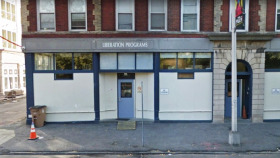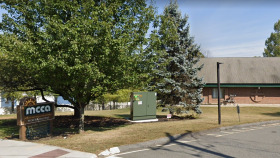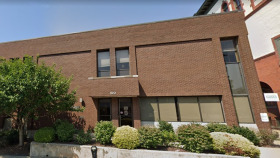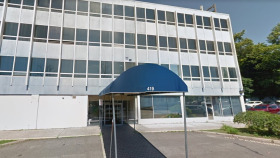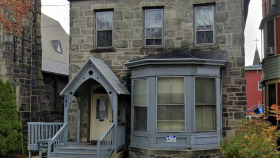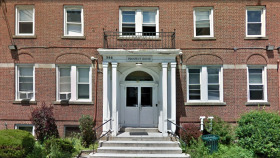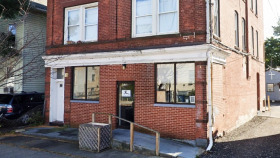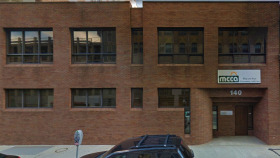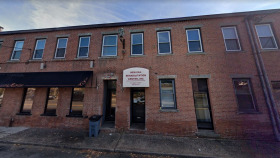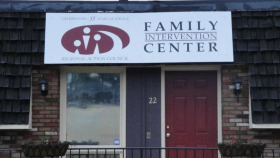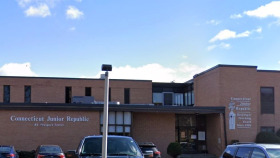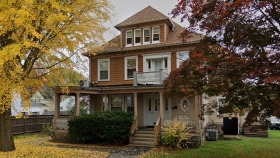Expert Insights
My work with Connecticut’s youth as a mental health professional is the most rewarding and demanding experience of my professional life. It’s a privilege to help young minds navigate the challenges of growing up, but it also hurts to hear that they utilize addictive substances like nicotine as an emotional crutch to deal with trauma, bullying, anxiety, and depression.
According to the Connecticut Department of Health, about 16,600 students in the state vape. High school students with poor mental health are over twice as likely to vape compared to peers without psychological struggles.
Most youth access tobacco through friends and family, but targeted advertising on social media is a threat. If teens self-medicate with substances, it’s our community’s responsibility to provide them with accessible emotional support and recovery services.
~ Serg Valencia, MD, MS
How Much Does Drug Rehab Cost in Connecticut?
Connecticut is ranked 35th nationwide in terms of addiction treatment affordability, with an average cost of drug and alcohol rehab of $57,667 (without insurance).
- Medical detox is the most expensive, with an average cost of $142,170
- Long-term inpatient drug rehab in Connecticut costs an average of $50,888
- Outpatient addiction treatment in Connecticut costs an average of $8,456
- Outpatient methadone treatment is the most affordable, with an average cost of $7,513
Many rehabilitation programs accept a variety of insurance plans, offer sliding scale fees, or are free. There are many factors to consider when calculating the cost, and the cost varies from center to center. Some factors that influence what you will pay include:
Treatment setting (inpatient vs. outpatient)
Amenities (luxury or special features)
How long you will receive treatment
Insurance acceptance
Available subsidies or donations
Location
For example, the longer you need care, the higher the cost. And inpatient, which provides 24/7 care, costs more than outpatient. The type and length of your program should be determined by your needs, not your ability to pay. However, for those who need it, an affordable treatment center can be found.
How to Pay for Drug Rehab in Connecticut
As of 2024, there were over 230 drug rehab facilities across the state of Connecticut. These facilities accept several payment methods. Of those treatment facilities, the following numbers reflect how many accept their respective payment methods:
Addiction treatment centers can offer a variety of payment options for Connecticut residents, including state or federally funded programs or insurance coverage, sliding scale fees, and grants and scholarships. Substance abuse treatment is not a luxury. It is necessary to achieve sobriety and live as a contributing and healthy member of society.
Private Pay + Insurance
Insurance is healthcare coverage provided by non-government agencies, such as private companies or employers. It requires you to pay a premium either directly to the company or through your employer. Health insurance offers a broad range of services and plans can vary significantly in terms of coverage, cost, and benefits.
However, there are federal laws that protect your right to mental health and substance abuse treatment, with some exceptions. The laws include the 2008 Mental Health Parity and Addiction Equity Act and the 2010 Affordable Care Act. Some people choose to self pay or private pay for their addiction treatment so the insurance company and employer are unaware. These are some of the major insurance providers in Connecticut.
- Access Health Connecticut
- Anthem Blue Cross Blue Shield of Connecticut
- Cigna Health and Life Insurance
- Compass Rose
- ConnectiCare Benefits
- Connecticut Health Insurance Plans
- HPHC Insurance Company
- HUSKY Health Plan
- Oxford Health Plans
- Special Agents Mutual Benefit Association
- UnitedHealthcare Insurance Company
Medicaid
Medicaid is a joint federal and state program that provides healthcare coverage to low-income individuals and families. You must meet eligibility requirements to receive coverage, including income level, Connecticut state resident, Social Security number, and citizenship. Medicaid covers essential healthcare services such as hospital care, doctor visits, long-term care, and substance use and mental health condition treatment.
You can apply online and find out if you qualify through the Health Insurance Marketplace. The Connecticut Department of Social Services supports the Connecticut Medical Assistance Program and offers online resources, billing manuals, and program regulations for providers, hospitals, and patients.
Medicare
Medicare is a federal insurance program. Medicare Part A covers hospital and inpatient care and Medicare Part B covers outpatient care and doctor visits. Some people purchase a Medicare Advantage plan, which is a premium based managed care policy that sometimes includes additional benefits. Medicare covers substance abuse and mental health care treatment when you meet eligibility requirements. Original Medicare and Medicare Advantage plans are available to people over age 65.
More than 78,000 Connecticut residents are enrolled in Medicare and well over half have Medicare Advantage plans. Addiction treatment center financial counselors can advise you if they accept Medicare and will verify your coverage. Prior authorization may be required before you can start treatment. This may include documented diagnosis and additional documentation that treatment is medically necessary.
Military Insurance
TRICARE is military health insurance available to active military personnel, retirees, and their families. The insurance plan splits the U.S. into two regions – East and West. Humana manages the TRICARE East Region for Connecticut residents. Connecticut also offers benefits to service members, veterans, and their families, including employment preferences, vehicle tags, and education and tuition assistance. Your eligibility depends on your residency status, veteran disability status, and your service in the military.
Retired service members living in Connecticut are exempt from paying income taxes on their military retired pay when the pay is taxed on their federal income tax return. Disability pay is also not taxed in Connecticut.
Tribal Funding and Programs
Connecticut has a diverse Indigenous community and Connecticut recognizes three Nations – the Eastern Pequot, Golden Hill Paugussett, and Schaghticoke tribes. The federal and state governments recognize another two – the Mashantucket Pequot and Mohegan Nations.
The Mashantucket Pequot/Mohegan Fund distributes grants for educational use and to help support general hospitals. According to Connecticut Grant Watch, eight of the 35 substance abuse grants given throughout Connecticut are aimed at tribal communities.
Other Low-Cost Options
Treatment centers may also offer other low cost options to help you meet financial obligations for addiction treatment. The quickest way to receive treatment is a personal loan you can get from the bank or friends and family. While a loan from the bank offers greater confidentiality, loans from friends and family typically come with much lower interest rates and a repayment plan you can customize to meet your needs.
A personal loan can also help you receive care while you wait to secure funds from other areas. For example, some treatment centers offer sliding scale fees or payment plans to help you pay for treatment or the fees associated with your insurance coverage, such as deductibles, copays, and coinsurance.
Local organizations may offer grants and scholarships. Faith based organizations typically offer treatment at low to no cost. Employee Assistance Programs may help you find resources in the community covered by the program and some offer financial assistance to cover the cost of addiction treatment centers. The financial aid options vary depending on the rehab center, geographical location, and whether they accept state or federal funding programs such as Medicaid or Medicare.
Resources
- Substance Abuse and Mental Health Services Administration. (2022, April 14). Substance Abuse Prevention and Treatment Block Grant.
- Mentalhealth.gov. (2020). Health Insurance and Mental Health Services.
- Center for Medicare Advocacy. (2022). Medicare Coverage of Mental Health and Substance Abuse Services.
- Drugs.com. (2022, June 1). Suboxone.








